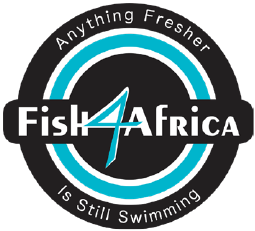A Pescetarian based diet has been around for thousands of years with ancient civilizations from Japan, parts of Asia and Mediterranean countries like Greece relying on fish for their source of protein. Pescetarianism or pesco-vegetarianism means being vegetarian while still including seafood in your diet.
Those who practice this way of eating do not eat beef, poultry, pork or any other type of meat. Vegetarian foods such as fruits, vegetables, beans, grains and nuts are allowed as part of a Pescetarian diet. Depending on your preferences, you may or may not include dairy and egg products in your diet.
The following are good options to consider due to high levels of EPA and DHA (long-chain omega-3 fatty acids plentiful in fish and shellfish).
- Sardines
- Trout
- Herring
- Salmon
- Anchovies
- Mackerel
The benefits
- Makes a significant improvement to your health
A Pescetarian diet may reduce your risk for heart disease and other cardiovascular diseases as well as stroke, osteoporosis, obesity, diabetes, arthritis, high blood pressure and some types of cancer. Fish is very low in saturated fat and contains very large quantities of polyunsaturated omega-3 fatty acids, which have been connected to possible treatments for an array of conditions including heart disease, depression and ADD.
All of the iron your body requires can be satisfied by an adequate intake of fish and seafood. Pescetarians have a lower risk of developing iron deficiency anaemia – a common condition among vegans and vegetarians.
- Helps lower inflammation
Omega 3’s that are found in fish are extremely valuable due to their ability to help fight inflammatory conditions that lead to numerous diseases including cancer, rheumatoid arthritis and asthma. Both types of polyunsaturated fats play an important role in the body, helping to form our hormones, cell membranes and immune responses. Inflammation is the root cause of all diseases and by lowering its presence and severity makes us less likely to develop diseases like cancer, cognitive decline and cardiovascular disease.
- Omega 3 fatty acids and vitamin D are required for serotonin function in the brain
Omega 3 fats and vitamin D have numerous benefits for mental health. They improve mood, cognitive function and assist with reducing the risk of dementia. Researchers have found that these nutrients play a vital role in serotonin production. Vitamin D is required for the conversion of the amino acid tryptophan into the neurotransmitter serotonin. Serotonin affects a wide variety of cognitive functions and behaviour such as decision making and social behaviour. Being low in vitamin D can increase the risk of depression, particularly during winter when levels of sunshine are low.
- Can assist with weight loss and maintenance
Low intakes of omega-3’s are now being tied to obesity and weight gain, click here. Specific fats are very important for good health and overall wellbeing. Although many follow a high-fat low-carb diet, it’s very important to know which specific fats you should be eating. A good source of omega 3 fats come from oily, especially deep-sea fish that is wild rather than farmed. Eating more of these impacts your metabolism favourably.
- Contribute towards saving earth’s scarce resources
Did you know that the largest user of fresh water is the livestock industry? Water is directly needed for drinking and cleaning of animals. A large amount of fresh water is used to grow the feed that livestock animals eat. In 2006, the UN estimated that the combined climate change emissions of animals bred for their meat were about 18% of the global total – more than cars, planes and all other forms of transport put together. The Vegetarian Resource Group reports that one pound of beef requires 2,500 gallons of water in comparison to one pound of soy which only requires 250 gallons of water and a pound of wheat requires only 25 gallons.








